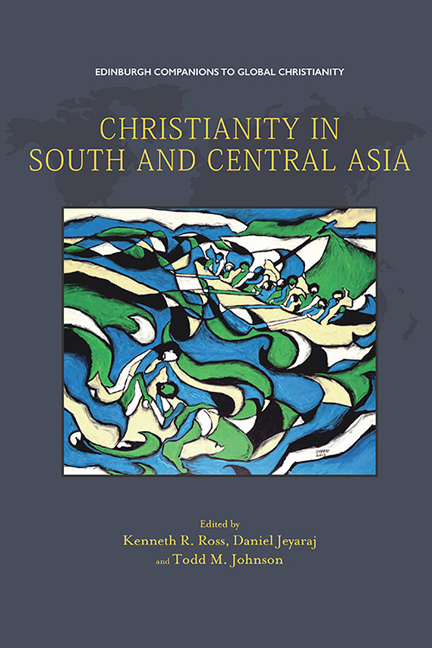Evangelicals
Published online by Cambridge University Press: 30 April 2020
Summary
In 2017, in India a church was burned down or a cleric beaten, on average, about 10 times each week. Such incidents are based on allegations that conversion to Christianity is the result of force, allurement or threat of violence. Over the past decade, more and more states in India have enacted anti-conversion laws, and pressure is mounting to pass a national anti-conversion law. Ironically called ‘Freedom of Religion’ laws, these measures mainly seek to restrict poor and outcaste people from converting to Christianity. Across Central Asia, the outlook for religious freedom is gloomy. In the US State Department's 2017 list of the worst violators of religious freedom, Tajikistan, Turkmenistan and Uzbekistan were ‘countries of particular concern’. Kazakhstan was not far behind and was listed as a ‘Tier 2’ country. The Central Asian republics all display worrying signs of returning to Soviet-era type religious repression for Christians who wish to practise their faith in peace.
What is distinctive about the Asian context is that, compared with sub-Saharan Africa and Latin America, Evangelical Christianity occupies a minority position. In most South and Central Asian countries, Christians account for 1–2% of the total population. The only exceptions are Kazakhstan and Kyrgyzstan, where nearly 26% and less than 6% respectively of the population are Christians. Although the percentage of Christians in Asia is remarkably low, the region has the fastest-growing Evangelical population in the world. The Ev angelical population in Asia grew from 17 million in 1970 to over 200 million in 2015. While much of this growth came from an exponential rise in the number of Evangelicals in China, we also see significant growth among the burgeoning Pentecostal and Charismatic churches in parts of India and Sri Lanka.
Asian Evangelicals differ from their counterparts in Latin America and sub-Saharan Africa in the level and nature of restrictions they experience on individual and institutional religious freedom. In Latin American, constitutional and legal restrictions on Protestant churches and individuals had been lifted by the early 1990s. In sub-Saharan Africa, apart from a few places such as northern Nigeria, systematic repression of Christians is the exception, not the rule.
- Type
- Chapter
- Information
- Christianity in South and Central Asia , pp. 274 - 286Publisher: Edinburgh University PressPrint publication year: 2019



